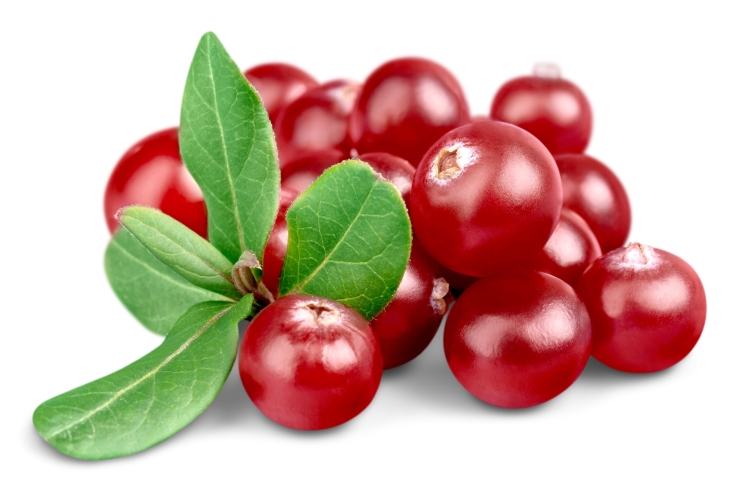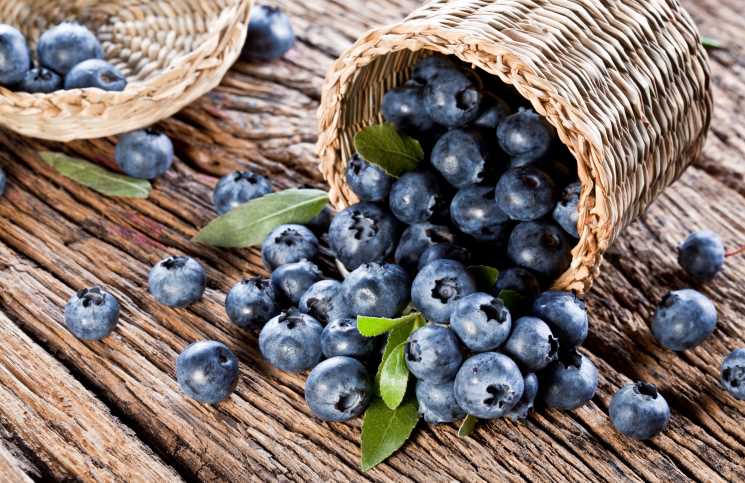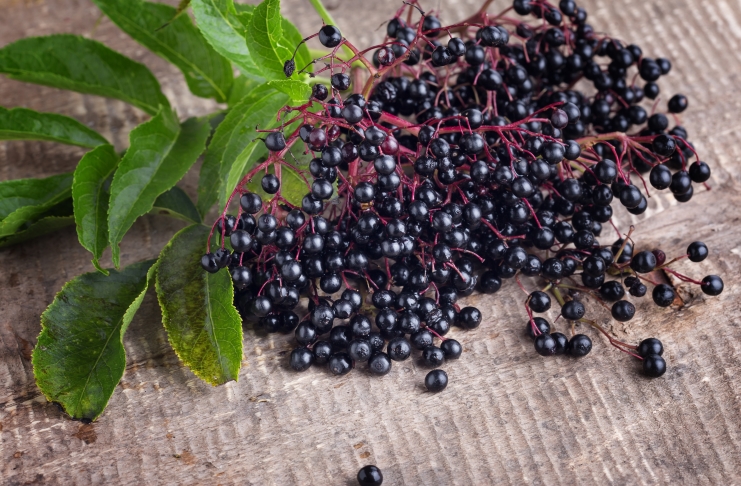Ginger is a spice and proclaimed superfood with many proven benefits and very few side effects. The plant’s scientific name is “Zingiber officinale”, with all the health benefits being contained in the flesh of the plant’s root system (know as a rhizome).
Many of you will already know ginger for its extensive use as a spice in sweet and savory dishes. However, there’s so much more to this plant than meets the eye. The ground or sliced root of the ginger plant has been used in traditional and alternative medicine for centuries, for everything from fighting sea sickness and nausea, to preventing the common cold and flu.
While ginger has a very bitter and warm taste when consumed raw, the flavor’s pleasing when made into a tea or consumed in various dishes. The best way to take it for health-boosting purposes is in raw form, to maximize the amount of 6-gingerol (ginger’s main health-booster) you’re taking in.
With this in mind, there are a number of supplement manufacturers who make quality capsules of dry ground root that are easy to consume, it’s just that nothing beats the sliced, uncooked fresh root of an undried ginger root when potency is a concern.
Keep reading to learn more about ginger, the potential benefits, side effects, dosing recommendations and selection tips.
Top 5 Ginger Herbal Supplements
 |
 |
 |
 |
 |
 |
 |
|
| Nature’s Way Ginger Root | Now Foods Ginger Root Extract | Solaray Organic Ginger Root | Nature’s Bounty Ginger Root | Swanson Ginger Root | Starwest Ginger Root Powder | Herb Pharm Ginger Extract | |
| View on Amazon | View on Amazon | View on Amazon | View on Amazon | View on Amazon | View on Amazon | View on Amazon | |
| Overall Rating | 5 / 5 | 5 / 5 | 5 / 5 | 4.9 / 5 | 4.9 / 5 | 4.8 / 5 | 5 / 5 |
| Serving Size | 2 Capsules | 2 Capsules | 2 Capsules | 2 Capsules | 2 Capsules | 1/8 tsp (125 mg) | 0.7ml |
| Price/Serving | $0.08 | $0.08 | $0.07 | $0.09 | $0.07 | $0.16 | $0.31 |
| Effectiveness | 5 / 5 | 5 / 5 | 5 / 5 | 5 / 5 | 5 / 5 | 5 / 5 | 5 / 5 |
| Quality | 5 / 5 | 5 / 5 | 5 / 5 | 4.8 / 5 | 4.8 / 5 | 4.5 / 5 | 5 / 5 |
| Taste | 5 / 5 | 5 / 5 | 5 / 5 | 4.9 / 5 | 4.9 / 5 | 4.8 / 5 | 5 / 5 |
| Digestibility | 5 / 5 | 5 / 5 | 5 / 5 | 5 / 5 | 5 / 5 | 5 / 5 | 5 / 5 |
Benefits of Consuming Ginger
1. Anti-Inflammatory
The main ingredient in ginger that affords to people so many health benefits are a combination of six different gingerol compounds. Chemically, “6-gingerol” is closely related to capsaicin; which is found in chili peppers and well known for being among the world’s most potent antioxidants.
Much of the benefits of ginger are a result of the widespread work 6-gingerol, and other antioxidant compounds called shaogals, do within the body reducing oxidative damage and the resulting inflammation it causes. Oxidation occurs normally from the chemicals we all consume, but is made worse by smoking, alcohol, drugs, and environmental factors such as working and living around toxic manufacturing plants.
There has been a lot of research testing the effects of ginger on arthritis throughout the years, however, science and health professionals alike all agree that that reduced inflammation in the body is helpful at reducing a number of risk factors including heart health, cancer prevention, reduction in muscle pain, and even preventing long term damage to the body after exposure to heightened levels of radiation!
In one study, physicians found that 75% of arthritis patients and 100% of patients with muscle pain experienced relief of pain and/or swelling after consuming the recommended amount of ginger regularly. Tests have shown ginger to suppress the pro-inflammatory compounds produced by synoviocytes and chrondrocytes, which lubricate and make up the tissue of our joints; and leukocytes (immune cells) which attack and destroy joint tissue in people suffering from rheumatoid arthritis.
2. Nausea
A study performed on almost 2,000 people back in the nineties concluded that ginger is at least as effective, if not more so, than the most common medications used to prevent and/or treat sea sickness including: cinnarizine, cinnarizine with domperidone (Stugil, Mosic), cyclizine, dimenhydrinate with caffeine (Dramamine), meclozine, and scopolamine.
Other tests performed throughout the years have found ginger effective at treating morning sickness, chemotherapy related nausea, and post-surgery nausea. The optimal on-demand dose appears to be 1 – 1.5 grams of ground ginger root.
3. Chronic Indigestion
Chronic indigestion is believed to be caused by a delayed emptying of stomach contents after eating. Millions worldwide and up to 80% of pregnant woman suffer from this condition on a regular basis.
Though more studies need to be completed, there is enough data that exists to confirm taking 1-gram or more of ginger can help increase the speed at which the stomach empties. One study found ginger increase gastric motility and emptying by as much as 50% in individuals suffering from chronic indigestion.
4. Menstrual Pain
Ground ginger has provided relief to women who suffer from menstrual pain for centuries. It’s been used in eastern, and later in traditional western medicine for centuries and even proved more effective than commonly used menstruation drugs like ibuprofen and mefenamic acid.
The key to menstrual pain relief using ginger is to start taking it when menstruation begins, if not two or three days leading up to your period. Take 1-gram daily, split over two even doses morning and evening.
5. Radiation Exposure
A study done on mice completed by a company specializing in radiation treatments (Radiation Research) found that administering ginger at a rate of 10 mg per kilogram of body weight prior to radiation exposure prevented increases in free radical damage to lipids and cholesterol (which causes atherosclerosis).
Scientists also found a large reduction in the decrease of the mice’s stores of glutathione, one of the body’s most important internally produced antioxidants that’s often severely affected after exposure to heightened levels of radiation.
6. Increased Immunity
Ginger has proved itself a worthy adversary in the battle against many bacteria and pathogens that people come in contact on a regular basis. This includes several drug resistant pathogens that have become increasingly resistant to modern antibiotics throughout the years, due to over-prescribing by doctors and overuse by patients.
This study that used ginger extracts concluded that both ginger and garlic were among the most potent natural immune-boosting compounds available in nature, when it comes to treating several drug resistant pathogens that cause nosocomial infections.
7. Brain Booster & Potential Alzheimer’s Symptom Relief
Ginger has been used in eastern culture for centuries as a cognitive health booster. Studies have proved that 6-gingerol increases acetylcholine levels in the brain by blocking the enzymes that cause this valuable neurotransmitter to eventually break down, thus reducing acetylcholine turnover, leaving more for use in learning and memory functions.
Some of the best Alzheimer’s drugs on the market reduce acetylcholine breakdown using the same mechanism of action as 6-gingerol, but with several undesirable side effects. This benefit offers significant treatment to those who suffer from, or who are at risk of later developing Alzheimer’s, dementia, and other cognitive dysfunctions.
The brain health-boosting benefits of ginger don’t end at acetylcholine either. With increased neurotransmitter activity, our motivation and happiness hormones dopamine and seratonin are also significantly increased. In general, 6-gingerol and the shaogals ginger contains offer powerful defense against the oxidative damage that limits our memory and problem solving ability, while protecting against ADHD, anxiety, and brain fog too.
8. Heart Health
Increased oxidative damage in the body has a huge impact on one’s risk for heart disease risk factors, namely elevated lipid and cholesterol oxidation in the arteries. When oxidized triglycerides, cholesterol, and proteins become sticky, the oxidized matter sticks to arterial walls and attracts calcium and other minerals, leading to arteriosclerosis (ie., hardening of the arteries).
Ginger’s immense antioxidant properties have proven to significantly counteract oxidative stress in the bloodstream, while simultaneously reducing triglycerides and bad (LDL) cholesterol levels; both markers that increase the risk of heart attack big time!
Arteriosclerosis is among the most common and preventable form of cardiopulmonary disease. It leads to high blood pressure, poor cholesterol balance, kidney disease, poor exercise tolerance, and eventual heart attack or stroke if left untreated.
Many of the hormonal processes that lead to increase oxidative damage in the bloodstream often result from the growing epidemic of insulin resistance (ie., type II diabetes).
9. Diabetes
While the epidemic grows, still too few people understand all the metabolic processes that are altered (for the worse) the very instant that insulin resistance begins to take place inside the human body. High blood sugar isn’t just a consequence of type I and II diabetes.
High blood sugar makes it impossible for the body to maintain metabolic balance: triglycerides and cholesterol levels are thrown out of whack, along with leptin; the hormone that tells us when to stop eating when we’re full. This not only leads to heart disease down the road, but also unexplainable weight gain in those who suffer from diabetes.
A 2015 study of 41 participant of all ages, who had been diagnosed with various stages of type II diabetes, showed 2 grams of ginger daily was enough to reduce fasting blood sugar by 12% in those who remained to the end of the 3-month study. In that same study, HbA1c levels dropped by 10% and participants averaged more than a 20% reduction in the blood markers (discussed earlier) that lead to heart disease.
10. Possible Cancer Treatment & Preventative
Cancer, at its essence, is nothing more than abnormally organized cells in the body that refuse to die. This deviant process stops the body from regenerating new healthy cells as it’s designed to do. When this happens, killing the cells with radiation is the preferred treatment of modern medicine.
The substance in ginger called 6-gingerol has shown promise at increasing the rate of cancer cell death. Though many studies have shown promise, many others such as this one on using ginger to treat colorectal cancer, have been completed with opposing results. As of now, ginger may well be a great natural therapy for cancer prevention and treatment, but as yet the plant root is recommended by very few oncologists as a viable way to rid the body of this disease.
Potential Side Effects/Interaction of Ginger
1.Diabetes Warning
You’ve already learned how potent ginger can be at lowering blood sugar and other diabetes markers. If you’re on Metformin, insulin, or any other medication or supplement that lowers blood sugar, consult your doctor before consuming large amounts of ginger.
2.Blood Thinners and Blood Pressure Medications
Heart medications, particularly those that lower cholesterol and control blood pressure, may interact with ginger. Ginger is a potent blood thinner because of its ability to lower triglycerides and LDL cholesterol, and may put you at risk of uncontrolled bleeding when combined with prescription blood thinners. This means ginger should be avoided in the two weeks leading up to any surgery and completely avoided by people in the later stages of pregnancy, and those with genetic disorders that cause increased bleeding.
3.Ulcers and Digestive Tract Inflammation
People with ulcers, or inflammation of the intestines or bowels, should avoid ginger as it can cause increased bleeding and/or blockages in the digestive tract. Many people with these conditions report regular consumption of ginger helped their condition, but it isn’t considered the best treatment option when weighing the potential side effects.
4.Gallstones
People who are predisposed to gallstones may find ginger aggravates their condition. This is because the plant increases bile production and stones are formed in the gall bladder from excess bile production.
General Dosing Instructions
The generally accepted safe dosage recommendation for ginger is 250 – 1000 mg (0.25 – 1 gram) taken up to 4 times daily. Exceeding 4 grams daily can cause mild reactions such as digestive upset and other potentially serious side effects, depending on your sensitivity to it.
Naturopathic doctor and wellness expert, Dr. Weil recommends the following doses, depending on what condition you’re trying to treat:
• Nausea and Motion Sickness: Consume 1000mg prior to activities that make you nauseous. Then take 500mg every four hours as needed, careful not to exceed 4000mg (4 grams) total.
• Morning Sickness: Take 500mg twice daily, morning and evening.
• Inflammation: Take up to 3,000mg (3 grams) daily in divided doses.
• Cold Relief: Place a 1 inch piece of peeled ginger in two cups of boiling water on the stove. Simmer for five minutes, let it cool, then add fresh lemon juice or honey to taste.
How to Select Ginger and Ginger Supplements
The flesh of the plant comes in a few different colors including yellow (most common), white, and sometimes red. If buying fresh, the root should be firm when squeezing with some force. Always smell the root before buying and discard any product that smells of rancid eggs, a musty basement smell, or ammonia (ie., all are indicative of mold).
Fresh ginger should have a protective brown skin covering it. The skin will be thick if the plant was harvested when fully matured. A thinner skin tells you that the root was harvested young and may not have maximum levels of 6-gingerol; the plant’s active protease responsible for preventing and relieving inflammation.
Quick & Easy Ways to Get More Ginger
• Grate 1-gram of fresh ginger into a cup and add 8 – 10 ounces of boiling water. Add an ounce of pure lemon juice and a teaspoon of fresh honey and enjoy. Works well as iced ginger tea, too.
• Grated fresh ginger is great to add to nearly any side dish. Particularly, rice side dishes sprinkled with ginger flakes and sesame seeds.
• Add freshly minced ginger to vegetable stir fry dishes anytime for a warming kick of flavor.
• Combine 1-gram minced ginger, 4-ounces of olive oil, and minced garlic to taste for a yummy natural salad dressing.
• Rub the oil from mashed fresh ginger on your face and back of hands anytime for a skin toning antioxidant boost.
Conclusion
Ginger has been used in traditional eastern medicine for centuries. With the recent up-tic in superfood popularity, many people around the world now use it every day as part of their cooking and wellness boosting routines. As a spice, it can be added to almost any sweet or savory dish.
Taken as a supplement, using the guidelines listed earlier, there are hosts of both proven and potential benefits for health and longevity. Many of which have yet to be discovered.
If you don’t fall into any of the risk groups mentioned, I recommend taking up to 2 grams per day, for at least a couple of months in order to experience the many health benefits of ginger.




